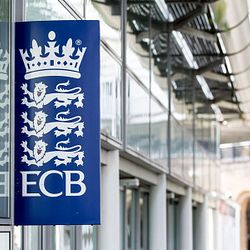
Press release -
ECB responds to ICEC report on equity in cricket, which finds evidence of discrimination across the game
- The Independent Commission for Equity in Cricket (ICEC) finds cricket’s structures and systems have failed to prevent discrimination
- The England and Wales Cricket Board (ECB) has today publicly apologised and acknowledged that more action is required to tackle discrimination in the sport
- Reforms will be agreed within three months, working with representatives from across cricket to agree a plan of action, in line with the ICEC’s recommended timelines
Today, the ICEC has published its report into the state of equity in cricket, which has found that structural and institutional racism, sexism and class-based discrimination continue to exist across the game.
The ICEC calls for decisive action to tackle discrimination, remove barriers and reform the game to make cricket more inclusive. The findings and recommendations were delivered to the ECB, which commissioned the report in November 2020 as part of its Equity, Diversity and Inclusion (EDI) work to make cricket more representative and to address allegations of discrimination.
The ECB today apologises unreservedly for the experiences of those who have faced discrimination in cricket.
In response to the report, Richard Thompson, ECB Chair, said:
“On behalf of the ECB and wider leadership of the game, I apologise unreservedly to anyone who has ever been excluded from cricket or made to feel like they don’t belong. Cricket should be a game for everyone, and we know that this has not always been the case. Powerful conclusions within the report also highlight that for too long women and Black people were neglected. We are truly sorry for this.
“This report makes clear that historic structures and systems have failed to prevent discrimination, and highlights the pain and exclusion this has caused. I am determined that this wake-up call for cricket in England and Wales should not be wasted. We will use this moment to demonstrate that it is a game for all and we have a duty to put this right for current and future generations.
“I would like to thank Cindy Butts, the Commissioners and her wider team at the ICEC for their hard work, commitment and focus in bringing these issues to our attention. I also want to acknowledge the courage of those who have shared their experiences with them, whilst recognising there will be many more who felt unable to give their accounts.
“As recommended by the ICEC, we will use the next three months to work with the whole game to build a plan of action which we will then publish. My absolute commitment is for cricket to strive to be the most inclusive sport in England and Wales.”
Richard Thompson’s open letter to Cindy Butts can be read in full below.
Response to Recommendations
Since the ICEC was established, considerable work has been under way across cricket to make the game more inclusive – including the ECB funding the expansion of the ACE Programme for young Black cricketers and increased provision of cricket in state schools where high numbers are on free school meals. There has also been a significant increase in female and ethnically diverse representation in governance across cricket. Today’s report acknowledges that progress has been made and that there have been significant improvements to the ECB and sections of the wider game’s approach since 2018. This work will continue, however the report makes clear that much more needs to be done.
As recommended by the ICEC, the ECB will use the next three months to consider the findings and 44 recommendations – many containing a number of sub-recommendations - of the final report in detail. Some reforms can be implemented swiftly. Others are achievable under the current framework of cricket but will require time and investment over the coming months and years. And some will require fundamental, longer-term changes to cricket in England and Wales, and its funding model.
The recommendations will be discussed with those involved in professional and recreational cricket. This consultation process will be led by Clare Connor, ECB Deputy Chief Executive Officer, with the support of a sub-group of the ECB Board including Baroness Zahida Manzoor, Pete Ackerley, Ebony Rainford-Brent, Sir Ron Kalifa, Richard Thompson and Richard Gould.
Richard Gould, ECB Chief Executive Officer, said:
“The ECB has recently been working to lay the foundations of change, but today’s report makes it clear that the sport, including the ECB as governing body, needs to go further and faster in our efforts.
“Making cricket more inclusive and reflective of the communities it serves is my number one priority. This cannot and will not be a quick fix. We are committed to taking the time to work with everyone in the sport, and especially with leaders of cricket’s clubs and institutions, to put in place reforms that are wide-ranging, long-term and meaningful. We should view this as a once in a generation opportunity to restore trust in the game we love.
“It is welcome to see the report’s assessment that there are green shoots of progress, and of significant improvements in the approach towards these issues since 2018, but this must only serve to strengthen our determination to go further and address the issues which remain. I also share the commission’s thanks to the many people involved in cricket across England and Wales who are already deeply committed to improving equity in our game. They will be crucial to making sure that in the years ahead we really can say cricket is a game for everyone.”
ends
The ICEC report is available to read in full here
A video statement from Richard Thompson is available to download here
Letter from Richard Thompson to Cindy Butts
Dear Cindy,
I am writing to you to formally acknowledge receipt of the ICEC’s report into racism, sexism and class-based discrimination in cricket, on behalf of the England and Wales Cricket Board (ECB).
While this report makes for deeply uncomfortable reading for all of those who love the game of cricket, we wish to thank you and your fellow Commissioners for the rigour of your report, and for holding up an unfiltered mirror to all cricket in England and Wales. We were clear when the ICEC was established two years ago by the ECB, that we wanted independent and expert analysis of the issues of inequity affecting our game, in order to move beyond these issues, collectively and definitively.
The findings of your report, based on over 4,000 contributions from those involved in cricket at all levels, speak for themselves. Cricket should never exclude anyone on the basis of their ethnicity, gender or social background. We apologise unreservedly for these experiences, and are thankful for the courage of those who have shared them with the ICEC, whilst recognising there will be many more who felt unable to give their accounts.
Your report spells out the stark need to address discrimination across cricket, recognising the pain and exclusion this has caused. I am determined that this wake-up call for cricket in England and Wales must not be wasted. It is our job to demonstrate that it is a game for all and we have a duty to put this right for current and future generations.
We will use this moment to reset cricket. This cannot and will not be a quick fix – we must take the time to put in place meaningful structural reforms. As your report rightly points out, cricket has been here before. This time our response will be different. Our response must be wide-ranging and long-term.
Your report recognises some of the work that has happened to lay the foundations of change. I welcome your assessment that green shoots are emerging and that there have been significant improvements in the ECB and sections of the wider game’s approach in recent years. Let me assure you that this only serves to strengthen my determination to accelerate and intensify this work. We now need to reflect on the Commission’s recommendations. It is clear we need to go further, and faster in our efforts. Those changes must make sure the game is more equitable, diverse and inclusive. As recommended by the ICEC, our first step will be to use the next three months to work with the whole game to build a plan of action. This will take the form of a consultation, which will listen to and engage with the communities whose stories this report has highlighted. Across a series of workshops, the ECB will seek feedback from the game, before scoping and refining responses to the ICEC’s recommendations.
Some reforms can be implemented swiftly. Others are achievable under the current framework of cricket but will require time and investment over the coming months and years. And some will require fundamental, longer-term changes of the game and its funding model.
This consultation process will be led by Clare Connor, Deputy CEO, with the support of a sub-group of the Board including Baroness Zahida Manzoor, Pete Ackerley, Ebony Rainford-Brent, Sir Ron Kalifa, Richard Gould and myself.
When at its best, cricket has the potential to be a force for good, to bring together generations and communities and change lives for the better. We see this in the positive impacts and major contributions of the many good people and groups who work hard to bring cricket to more people in their communities. I note that your report recognises the fact that many people are already deeply committed to improving equity in cricket, and I thank you for that. Their valuable work must continue, with our support, and they will play a fundamental role in delivering the changes which cricket will make. Only by being as inclusive as possible will we continue to grow the interest and participation in the sport we love.
Our absolute commitment is for cricket to strive to be the most inclusive sport in England and Wales.
Cindy, I want to close by thanking you and your fellow Commissioners, Sir Brendan Barber, Zafar Ansari, Michelle Moore and Michael Collins, and your secretariat, for your hard work, commitment and focus in bringing these issues to our attention. I look forward to updating you on the action plan we will build and commit to transparency about our progress in the months and years ahead.
In the spirit of full openness, we will be publishing this letter alongside our public response when your report is published on Tuesday.
Yours sincerely,
Richard Thompson
Chair
England and Wales Cricket Board
Categories





